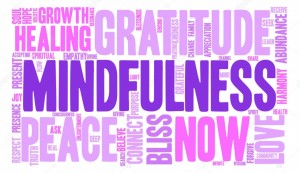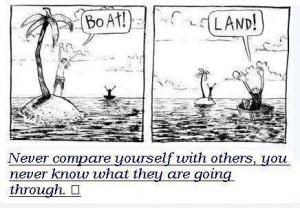What is Mindfulness?
Mindfulness is a very simple form of meditation which consists of focusing your full attention on your breath as it flows in and out of your body. Your breathe is used as an anchor to help keep you in the present moment. Focusing on each breath in this way allows you to observe your thoughts, feelings, body sensations and the world around you. Over time you come to realise that thoughts are not real and they come and go of their own accord.
You are not your thoughts.
Reminding yourself to take notice of any thoughts, feelings, body sensations and the world around you is the first step towards mindfulness. It enables you to step out of automatic pilot and become fully present in your everyday life which improves your mental health and physical well being.
“You can’t stop the wave, but you can learn to surf.”
Jon Kabat-Zinn

Potential benefits of Mindfulness
Over time, mindfulness brings about long-term changes in mood and levels of happiness and well-being. Scientific studies have shown that mindfulness not only affects the brain patterns in a positive way but it can also prevent anxiety and depression.
Mindfulness teaches you to observe any thoughts as they come and go like clouds in the sky. With practise, you come to the understanding that thoughts and feelings are transient.
I like to think of my thoughts as trains passing through a train station – I just watch them come and go. I can choose which train I want to get on and that is my way of dealing with any unpleasant or intrusive thoughts.
Thoughts come and they go, and ultimately, you do have a choice about whether to act on them or not.
Seven attitudes of Mindfulness
These seven attitudes underpin the mindfulness practice:
• Non-judgement
• Patience
• Beginners mind
• Trust
• Non-striving
• Acceptance
• Letting go
Mindfulness invites you to pay attention and observe clearly what is happening in your life. It will not eliminate life’s pressures, but it will help to cultivate a new awareness. Over time, this strengthens emotional resilience, helping you to recognise and step away from habits that do not serve you. A good mindfulness practice involves adopting a neutral attitude toward one’s experiences in the present moment.
“Mindfulness isn’t difficult. We just need to remember to do it.”
Sharon Saltzberg
I studied meditation in 2003 and I have experienced the long term benefits of having a personal
mindfulness practice.
I am a qualified Mindfulness teacher approved by: (BPS) The British Psychological Society.
If you would like to find out how mindfulness can help you, or you would like more information about my classes, telephone me today for a free confidential chat.
“Today is a gift, that’s why they call it the present.”

Before starting a mindfulness session or programme it is advisable that all participants take responsibility for their own health and well being. Certain health issues may need to be observed and discussed beforehand. Mindfulness is a very safe practise which generally improves physical and mental health but a consultation always takes place beforehand to make sure all clients are suitable. In very rare cases mindfulness is not suitable.
A seizure can be triggered by relaxation in certain people with epilepsy so it is important to be aware that epilepsy is a contra-indication. With the permission of a Doctor’s note, clients with epilepsy may be offered a one-2-one session where their needs can be fully met.
Asthma may also be a contra-indication. Just by focusing on the breath during mindfulness could be enough for a severe asthmatic to have an attack. Even for clients who believe their asthma is under control should be aware of this risk and they must always arrive with a fully charged inhaler.
Mindfulness is not suitable for clients with serious mental health issues especially if they show psychotic behaviours. This is for the safety of the other participants as well as for the safety of the teacher.
• Don’t just look – observe
• Don’t just swallow – taste
• Don’t just sleep – dream
• Don’t just think – feel
• Don’t just exist – live
